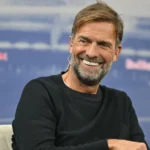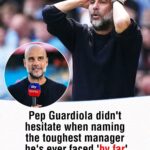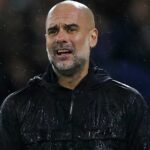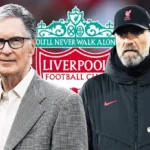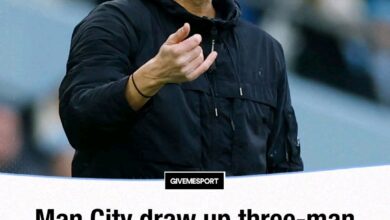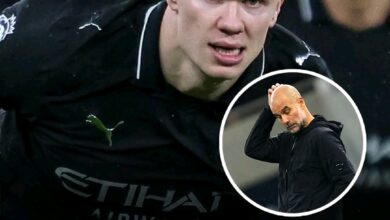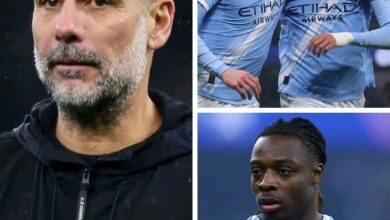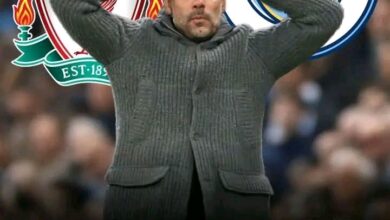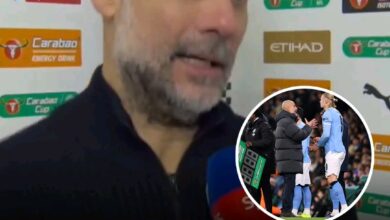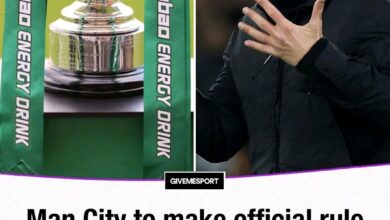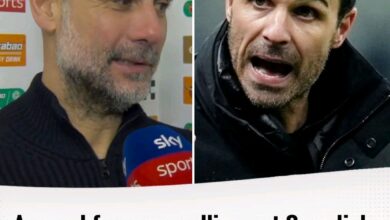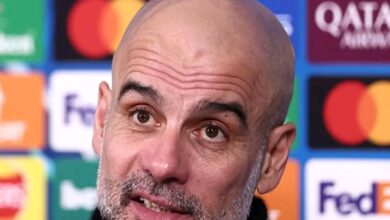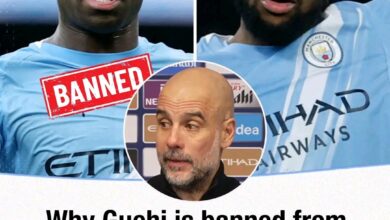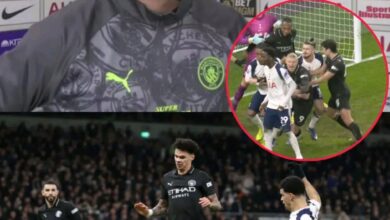There were days when I thought ‘I’ve got him.’ And then he’d destroy me again” Not many bosses have given Guardiola such a headache
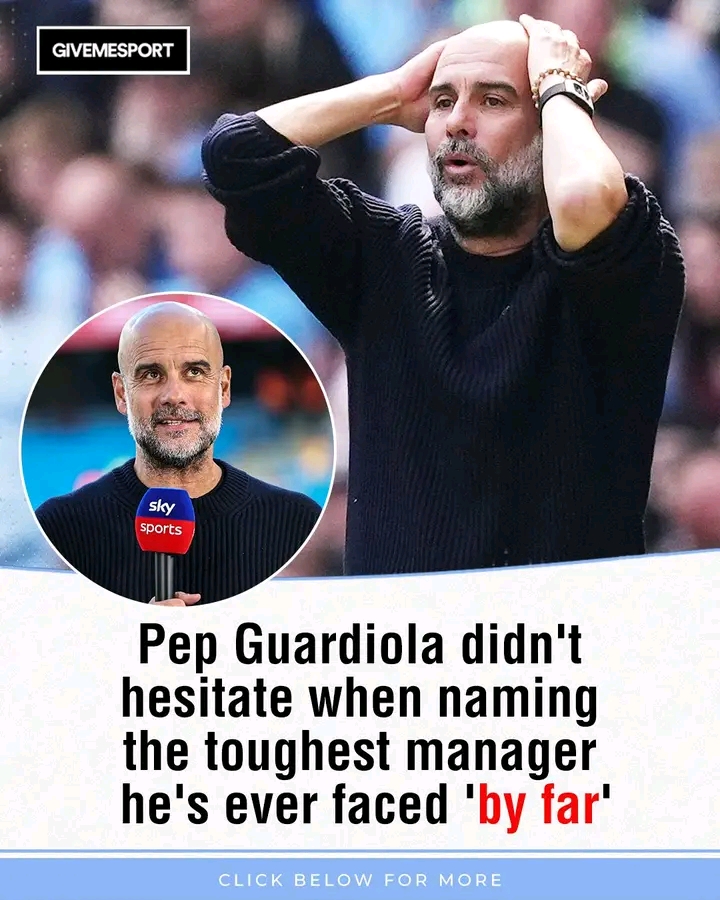
In the illustrious pantheon of football management, few names resonate with the same gravitas as Pep Guardiola. The Manchester City tactician has crafted a legacy of dominance across three of Europe’s premier leagues, revolutionizing the game with his possession-based philosophy and tactical innovations. Yet even the maestro himself acknowledges that one opponent has consistently pushed him to his absolute limits, forcing him to evolve and adapt in ways no other rival could match.
During a recent lecture for the UEFA Pro coaching course in Spain, Guardiola made a definitive statement that resonated throughout the football world: “Jurgen Klopp’s Liverpool have been the toughest I’ve ever faced in my life.” This wasn’t merely polite professional respect—it was a profound acknowledgment of the tactical chess match that defined an era of Premier League football.
“There were days when I thought ‘I’ve got him’ and the next day he’d destroy me again,” Guardiola elaborated, offering a rare glimpse into the vulnerability even the game’s greatest strategists experience. “He was the toughest by far.”
This admission carries extraordinary weight considering the caliber of managers Guardiola has faced throughout his career. From Sir Alex Ferguson’s Manchester United to Carlo Ancelotti’s various European powerhouses, from José Mourinho’s tactical pragmatism to Arsene Wenger’s aesthetically pleasing Arsenal—Guardiola has matched wits with virtually every managerial giant of the modern era. Yet it was Klopp who consistently presented him with the most perplexing tactical riddles.
The Guardiola-Klopp rivalry first ignited in Germany’s Bundesliga, where Guardiola’s Bayern Munich wrestled with Klopp’s dynamic Borussia Dortmund side. However, it was their subsequent battles in England that elevated this managerial duel to legendary status, as Manchester City and Liverpool pushed each other to unprecedented heights.
Between 2018 and 2022, these two clubs transformed the Premier League title race into a two-horse sprint that left the rest of the competition gasping for air. Their respective point totals during this period bordered on the absurd—with City accumulating 100 points in 2017/18 and Liverpool responding with 97 points in 2018/19 (in most seasons, enough to win the title) before claiming 99 points in their championship-winning 2019/20 campaign.
What makes Guardiola’s acknowledgment particularly poignant is that it comes despite City winning the majority of their Premier League title battles against Liverpool. This speaks to the intensity of the challenge Klopp presented—even in defeat, the German’s Liverpool teams extracted every ounce of excellence from Guardiola’s squads.
For football purists, the Guardiola-Klopp rivalry represented a fascinating philosophical contrast: Guardiola’s controlled possession approach versus Klopp’s gegenpressing intensity. In his lecture, Guardiola dissected precisely what made Klopp’s Liverpool so uniquely challenging to counteract.
“Because of his way of playing, his transitions, because he was very direct, because he attacked with a lot of players,” Guardiola explained. “The inside midfielders are usually support players, but Klopp’s midfielders were about attacking space.”
The Manchester City manager continued with a detailed breakdown: “So, he’d force the full-backs to close down a lot, then he’d open you up on the outside with his full-backs. They continually sprinted inside. Firmino would drop back. Salah and Mane’s runs behind him were unstoppable. It was very, very difficult to counteract.”
This analysis reveals how Klopp’s Liverpool created a system that specifically threatened the foundations of Guardiola’s footballing philosophy. While many teams adopted deep defensive blocks against City—essentially conceding possession in exchange for defensive solidity—Liverpool refused to cower. Instead, they pressed aggressively, attacked with verve, and turned matches against City into exhilarating end-to-end spectacles.
Central to Klopp’s tactical approach was the devastating front trio of Mohamed Salah, Sadio Mané, and Roberto Firmino—a combination that Guardiola specifically highlighted as problematic for his defensive structures. This forward line combined relentless pressing without the ball and devastating movement with it, creating a multi-dimensional threat that even Guardiola’s meticulously organized defenses struggled to contain.
Firmino’s role as a “false nine” was particularly disruptive to traditional defensive assignments. The Brazilian would drop deep, drawing center-backs out of position and creating space for Salah and Mané to exploit with their pace. This movement pattern forced Guardiola to constantly recalibrate his defensive approach against Liverpool—solutions that worked against other elite teams often proved inadequate against Klopp’s fluid forward line.
In many ways, this Liverpool front three represented the perfect tactical foil to Guardiola’s preferred system. By refusing to allow City’s defenders comfortable possession and simultaneously threatening rapid transitions that could bypass City’s midfield pressure, they created problems that had no easy solutions.
Perhaps the most telling aspect of Guardiola’s comments was his assessment of what the rivalry meant for his own legacy: “I give a lot of credit to what we’ve done these years to the incredible quality of the opponent we’ve had to face. Those three or four league titles we won against Klopp are the greatest success we’ve achieved. There hasn’t been a tougher opponent I’ve ever faced.”
This statement serves as both acknowledgment of Klopp’s excellence and validation of City’s achievements during this period. By identifying the Liverpool challenge as uniquely formidable, Guardiola effectively elevates the significance of his team’s triumphs. The implication is clear: conquering Klopp’s Liverpool represented a greater challenge than overcoming any other rival he encountered during his managerial career, including the storied Barcelona-Real Madrid clashes during his time in Spain.
The numbers reinforce just how exceptional both teams were during the peak of their rivalry. In the 2018/19 season, Liverpool accumulated 97 points—the highest-ever total for a Premier League runner-up and a figure that would have won the title in 25 of the 27 Premier League seasons to that point. Only City’s 98 points denied them the championship.
Liverpool’s response was to claim 99 points the following season, securing their first league title in 30 years. During this intense competitive period, both teams routinely exceeded 90 points—a threshold that had previously been breached only rarely in Premier League history.
Their head-to-head encounters often lived up to the hype as well. The 2-2 draw at Anfield in October 2021 was widely hailed as one of the finest Premier League matches ever played, showcasing the tactical sophistication and competitive fire that characterized this rivalry. Their FA Cup and Champions League encounters added further chapters to a compelling narrative
What made Klopp such a formidable opponent for Guardiola was not just his initial tactical approach but his willingness to adapt and evolve. The Liverpool that challenged City in 2017/18 was tactically different from the more controlled version that emerged by 2019/20.
Early in their Premier League rivalry, Klopp’s Liverpool was primarily known for overwhelming intensity and verticality—direct, high-energy football that sought to create chaos through pressing. As the rivalry matured, Klopp incorporated more elements of possession play, allowing Liverpool to control games rather than merely disrupt them.
This tactical flexibility meant that Guardiola could never become comfortable with a single approach to facing Liverpool. Each encounter required fresh analysis and new solutions—a challenge that Guardiola clearly relished despite its difficulties
Beyond the tactical battle, the Guardiola-Klopp rivalry was characterized by mutual respect rather than animosity. Unlike some of football’s more acrimonious managerial feuds, these two innovators consistently praised each other’s work while simultaneously plotting how to overcome it.
“Jurgen makes world football a better place to live,” Guardiola once remarked, while Klopp described their relationship as “respectful” despite the intensity of their competition. This professional courtesy added a compelling layer to their tactical chess match—two masters acknowledging each other’s brilliance while never conceding an inch on the competitive front.
The human dynamics between these two coaching titans offered a refreshing contrast to the often-overheated narratives that surround top-level football. Their rivalry proved that competition could be fierce without descending into bitterness or recrimination.
With Klopp’s departure from Liverpool at the conclusion of the 2023/24 season, the Guardiola-Klopp chapter in Premier League history has come to a close. Guardiola’s comments serve as a fitting epitaph for a rivalry that pushed both men to unprecedented heights and delivered some of the most compelling football the English game has witnessed.
The legacy of this managerial duel extends beyond the trophies and points totals. It forced tactical innovation, with both coaches constantly refining their approaches in response to the other’s strengths. It elevated the overall standard of the Premier League, establishing a new benchmark for excellence that other teams must now aspire to match. And it provided football fans with a masterclass in how contrasting philosophies can produce equally effective results when implemented with conviction and intelligence.
As the Premier League enters its post-Klopp era, the question becomes whether any rival can push Guardiola in the same way. Arsenal under Mikel Arteta—ironically Guardiola’s former assistant—have shown signs of developing into worthy challengers, but whether they can match Liverpool’s sustained excellence remains to be seen.
For Guardiola, the departure of his greatest rival may bring both relief and a certain wistfulness. The intensity of competition with Klopp’s Liverpool undoubtedly extracted a toll, but it also spurred City to heights they might not otherwise have reached. Great rivals often define each other, and the Guardiola-Klopp dynamic exemplified this principle.
Pep Guardiola’s acknowledgment of Jurgen Klopp as his toughest managerial opponent represents far more than a professional courtesy. It’s a testament to how Klopp’s Liverpool fundamentally challenged Guardiola’s footballing vision and forced the Catalan coach to constantly innovate and adapt.
“Those three or four league titles we won against Klopp are the greatest success we’ve achieved,” Guardiola stated, effectively ranking these triumphs above his Champions League victories with Barcelona and domestic dominance in Germany. This speaks volumes about the respect he holds for Klopp and the Liverpool teams that pushed City to their absolute limits.
As football historians look back on this period, they will likely view the Guardiola-Klopp rivalry as one of the defining narratives of early 21st-century football—a period when two contrasting philosophies reached their most refined expressions and produced some of the finest team performances the sport has witnessed.
For fans who experienced this rivalry in real-time, Guardiola’s admission simply confirms what they already knew: they were witnessing something special, a rare alignment of tactical genius that elevated football to its highest level. As Klopp departs the Premier League stage, Guardiola’s tribute stands as the ultimate acknowledgment from one master to another.
